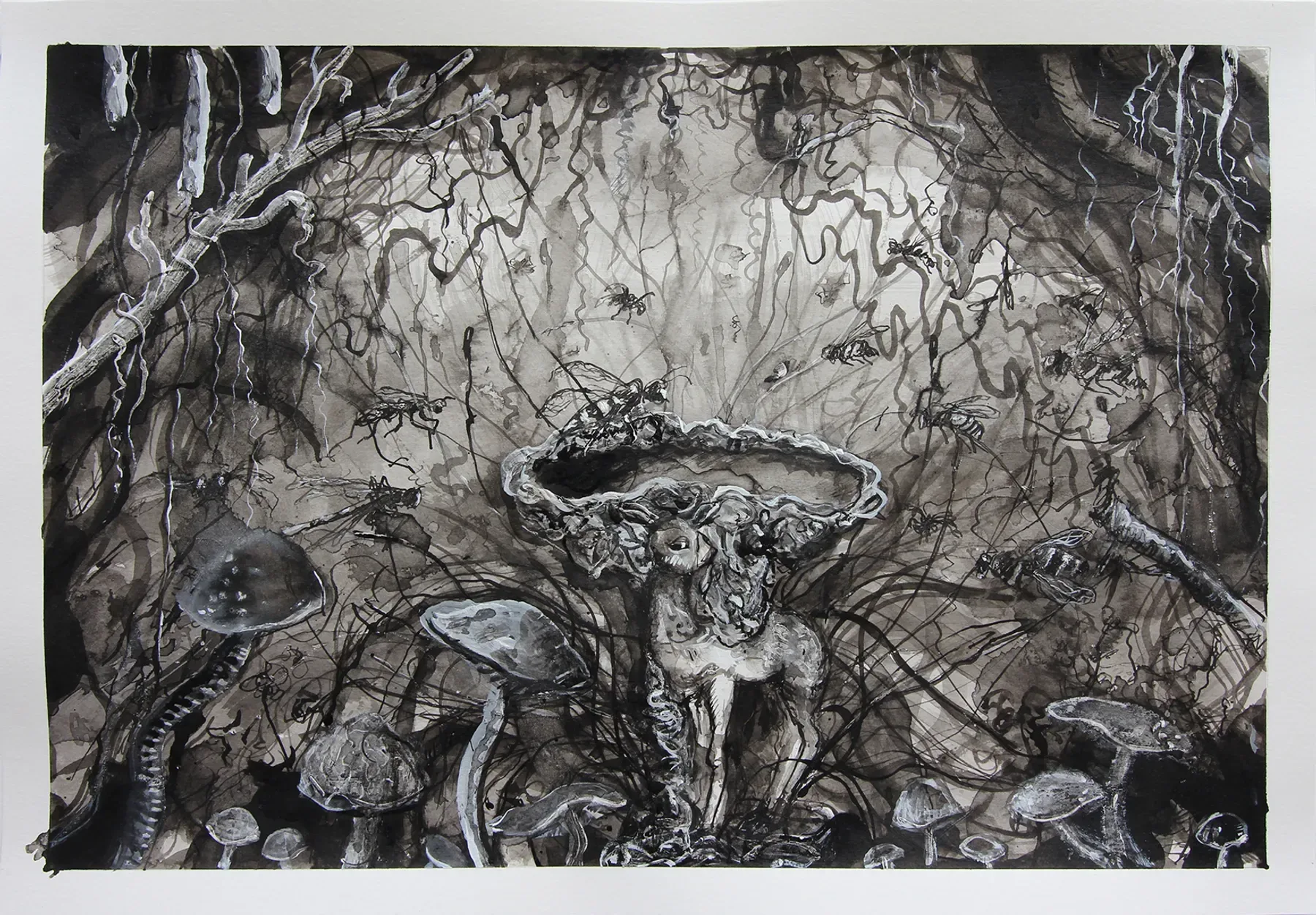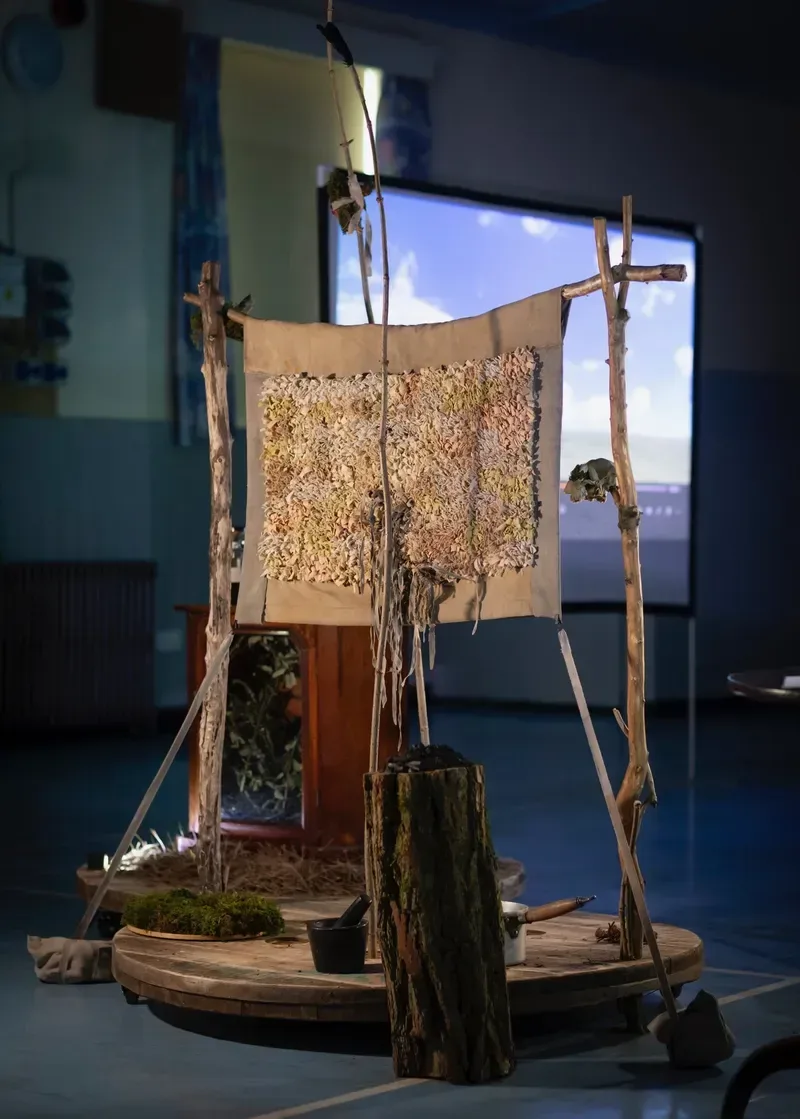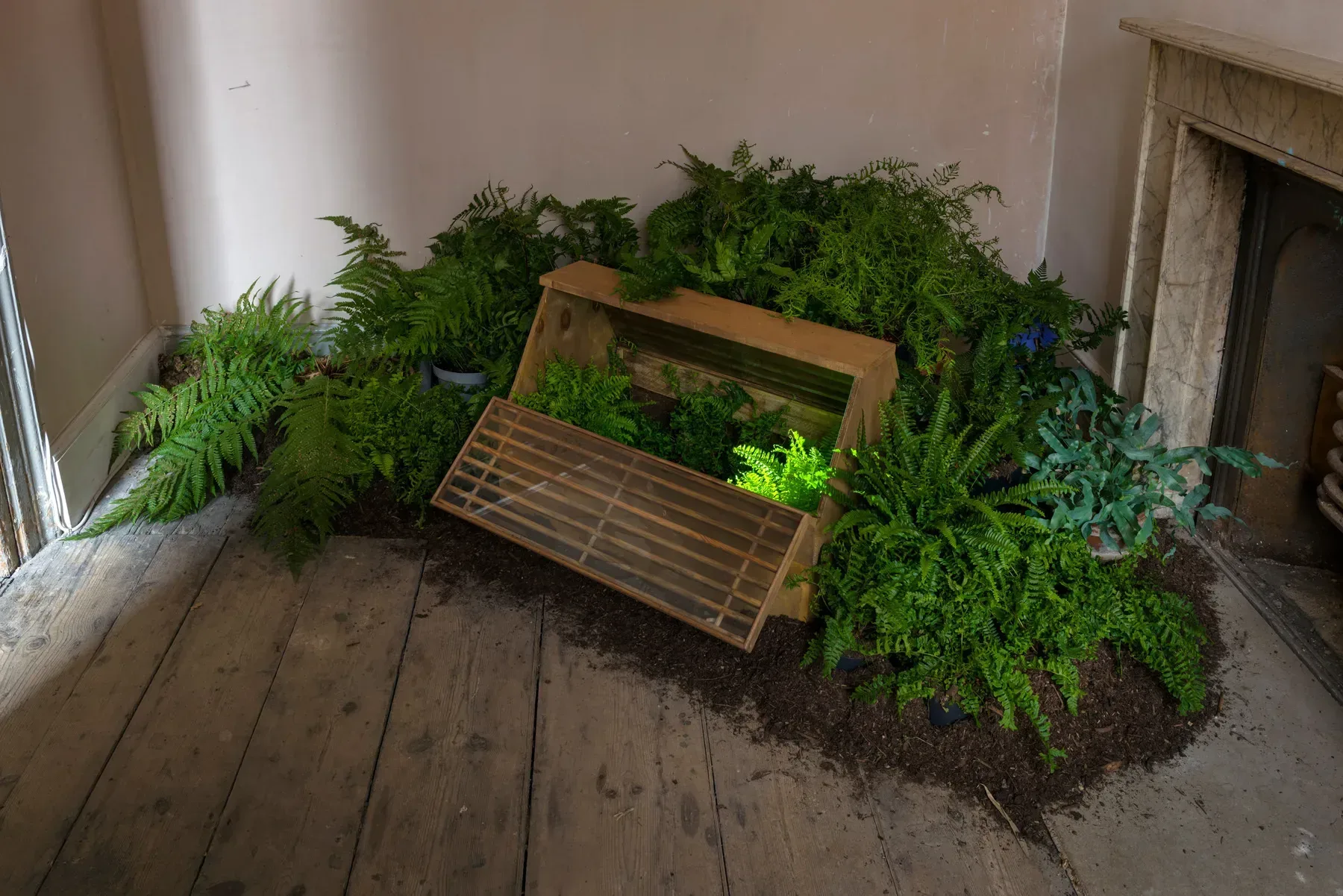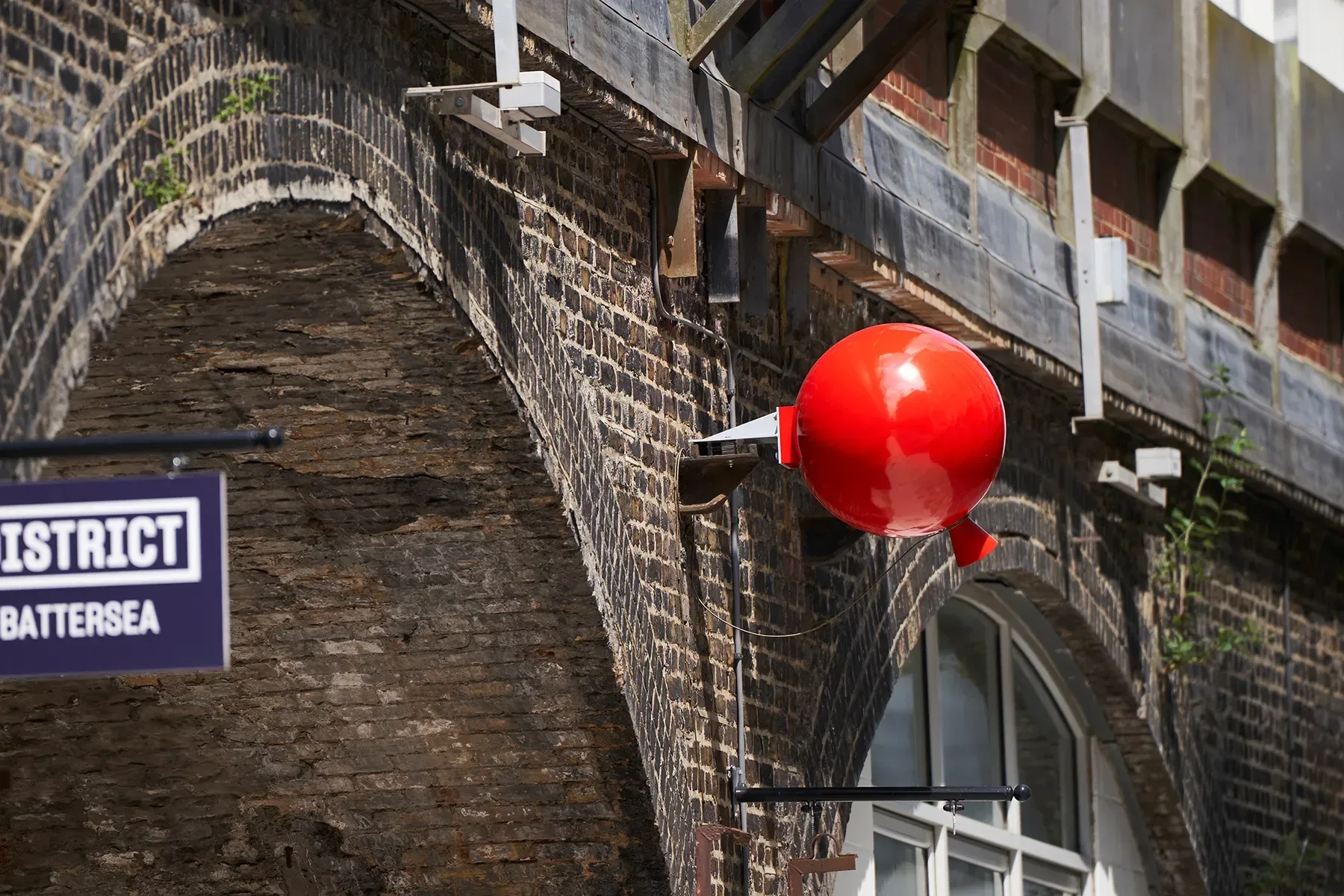Highlights: 19 - 25 August, 2024

The Impossibility of Containment (The Wardian Case), 2023 by Marcia Teusink
New Art Highlights of the week includes: Paul Newman, Sam Pickett, Marcia Teusink and David Appleyard
Fear Terrains (Gardens), 2024
Paul Newman

A series of Indian ink studies, from the garden with imagined elements, whilst recuperating from an operation. Part of the Fear Terrain series, which was generated initially from the fear of a blank page and starting anew, in drawing, painting as well as personal experience and anxiety. Motifs, gestures and imagery from previous bodies of work naturally seeps into their making.
An Ecology of Everything: Plants, Folklore, the Climate & Love (SAP), 2021 - 2023
Sam Pickett

Saturation Point was an 18 month project supported by ACE. Every month during 2022 I & a guest artist delivered foraging & art walk and talks in unmanaged woodland. The monthly forages had unifying themes, with ideas for future actions emerging through collaboration. We trod the same cross-country path on each visit, coming to welcome the last gate stile that enabled access to the woods. Once there, contact with our surroundings was a forensic multi-sensory investigation of taste, touch, observation, smell and sound. In the studio we documented the foraged plant material before adding it to the dye pot. The calendar of dyed material was made into a textile artwork using old cotton bedsheets and traditional rag rugging techniques referencing collective acts of female industry and notions of thrift. The artwork represents a data chart of rising temperatures in our region, recorded and analysed by environmental scientist Dr.Martin Lord. The project exhibition ‘An Ecology of Everything: Plants, Folklore, the Climate & Love’ consisted of the rag rug data chart, essay film, foraging ephemera & natural inks and was shown at Carnforth Civic Hall, Jwllers Morecambe & The Story, Lancaster 2023.
The Impossibility of Containment (The Wardian Case), 2023
Marcia Teusink

This installation is inspired by the history of the ‘Wardian Case’, a terrarium-type travel box for plants tried out for the first time in 1833, when British ferns were sent to Australia and Australian ferns were received back, and miraculously they all survived. This innovation led to a proliferation of moving plants around the globe, sometimes with huge unintended consequences. The emphasis here, though, is the plants’ ability to survive and thrive despite any human intervention.
788 Battersea, 2022 - 2024
David Appleyard

These public artworks by artist David Appleyard celebrate the pioneering aviation endeavours of the Short Brothers and Charles Rolls, and their connection to the railway arches at Prince of Wales Drive, Battersea.
As children, Horace, Eustace and Oswald Short dreamed of ‘How grand it would be to float in space’. By 1906, as Aeronautical Engineers, they worked from Arches 75 and 81. Supported by Charles Rolls, they built around thirty ‘lighter than air’ balloons in Battersea, filled with gas from the adjoining gas works. By phoning or sending a telegram to 788 Battersea, it was possible to charter a balloon flight across the channel to France or Belgium.
‘Banshee’, ‘Nebula’, ‘Condor’, ‘Valkyrie’ – a few of the giants of Battersea that were once seen rising just to the north, on a field beside a huge gas works and the Thames, just beyond these arches. In late Victorian/early Edwardian London, these arches made their mark as a centre for ballooning. The balloons were named, much like ships, by their owners, and piloted by plucky daredevils. The Short Brothers made their name by crafting balloons of excellence in their workshops under railway arches 75 and 81, supported by their regular patron and fellow innovator, Charles Rolls (Rolls Royce). Records were broken and history made, including continental flights and the first woman to qualify for an Aeronaut’s Certificate. The Short Brothers’ story still continues to unfold, existing as Short Brothers plc, an aerospace company based in Belfast, Northern Ireland and employing over 5,000 people.
Written by Annie Thirlwell-Hicks
Artworks by David Appleyard
Artists
Paul Newman , sam pickett , Marcia Teusink , David Appleyard
Tags, Topics, Artforms, Themes and Contexts, Formats
Share this article
Helping Artists Keep Going
Axis is an artist-led charity supporting contemporary visual artists with resources, connection, and visibility.


